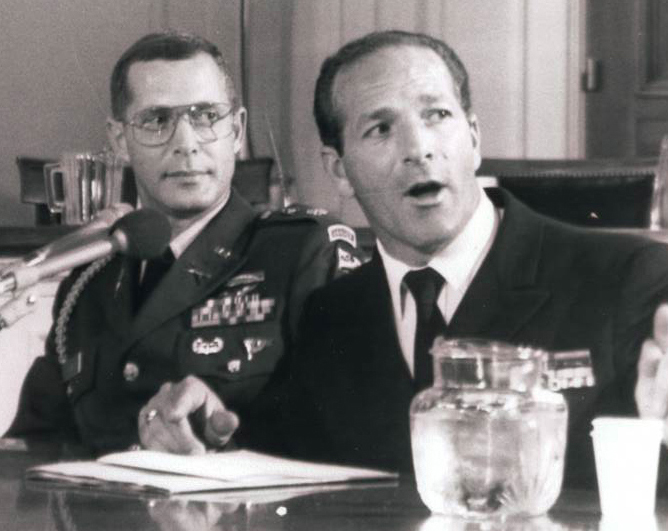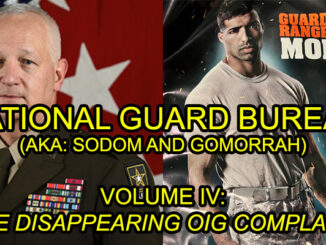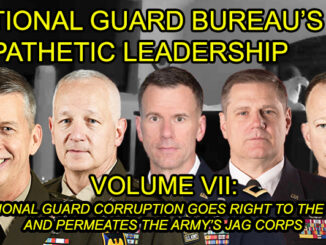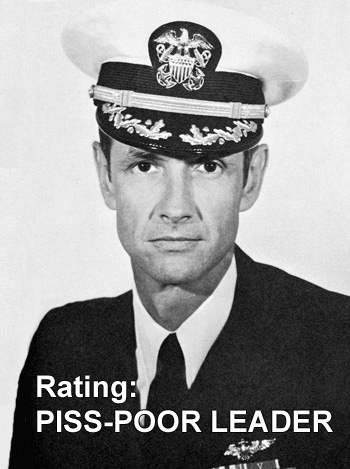
Captain Robert J. Naughton, served his country, and suffered for his country when he was held captive for years in Hanoi during the Vietnam War. By many accounts, he is a kind and good man, but a very poor leader. In fact, he was a piss poor leader. All of us might have a neighbor or friend that we love dearly, but we would not want them in charge of anything. Instead of believing in the rule-of-law, Capt. Naughton preferred the more comfortable world of politics. A man of integrity, he was not.
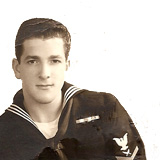
The Navy decided to reward Capt. Naughton by giving him command of a large naval air base, Naval Air Station, Dallas, Texas. Within a week after he took command, five of his officers conjured up a scheme to get rid of Chief Petty Officer (CPO) Michael Tufariello. Chief Tufariello was the CPO in charge of the administrative office that, among many other things, handled the complex task of managing the payroll folders for hundreds of drilling reservists.
For the benefit of our civilian friends, Congress became alarmed after WWII at the mass exodus of military talent leaving the military. They came up with a “reserve” system to entice people to remain affiliated with the military by allowing them to leave their civilian jobs on Friday afternoon and travel to a military base to “drill” on Saturday and Sunday. To make it worth their while, the weekend was divided into four, four-hour drill periods and military would pay reservists double their normal active duty pay. So, if a reservist drills for two days, they would receive four days pay.
Sometimes, reservists would be promoted to a rank where no pay billets were available. In this case the military would dispense “retirement points,” which upon age sixty-five, if the reservist had enough retirement points, they would receive commissary and other benefits.

Well, do we have to tell you what happened? Soon the graft and corruption began to permeate the reserve system. Officers got so lazy, they would call up the base on a Saturday morning and tell a friend to illegally log them in as if they were in attendance. And, there were other abuses of the system that could only be described as FRAUD.
In one case, 800 reservists flew in to NAS Dallas for their drill weekend, but the weather forecaster warned the commanding officer (CO) that a massive weather system was moving into the area which would likely ground the aircraft for several days.
The CO decided that having 800 reservists failing to show up at their civilian jobs on Monday morning, would adversely affect his retention problems. One of the big differences between the reserve and regular Navy is that reservists, even though under an agreement can quit anytime they want to, because the military frankly doesn’t have time to chase down reservists who no longer want to affiliate. Reservists are civilians who get activated every now and then.
On the other hand, if someone on active duty tried that… it’s called either “Absent Without Leave” (AWOL), or “Desertion,” depending the amount of time involved. The key to how nasty the military will get is predicated upon whether the individual accepted money or benefits. For example, if you were sent through the Navy’s flight school, you will own the military six years of your life before you can think about getting out of the service.

The commanding officer ordered the reservists back on the planes to return home before the weather system descended upon the base. So far, no harm, no foul. Where the CO violated the law was ordering Chief Tufariello to draw up paperwork to pay the reservists as if they were their the entire weekend.
In their infinite wisdom, Congress knew there would be abuses to the reserve payroll system and make it crystal clear that no one was to be paid for anything less than a four-hour drill period. There was no backdoor clause saying, “… that compensation shall be allowed, if in the commanding officer’s opinion it is warranted.”
Routinely, anywhere from 700-800 reservists were paid four-days pay for work they never did, for drills they never attended. Chief Tufariello discovered this type of fraud was ingrained in the military reserve system. It had happened several times before for various reasons other than weather. Why risk it? Why would the commanding officer risk misappropriating millions of dollars in taxpayer money?
The reason was clear; promotions and future assignments in the reserve navy are largely predicated by retention numbers. Reserve commanders quickly realized their retention numbers stayed strong, if they paid people for drills they never attended. And, if the CO looked the other way when naval officers fraudulently mustered in, those retention numbers also remained high.
Tufariello would have none of it and said he would have no part of what he viewed as a clear violation of law. He told a newly assigned officer and pilot about what was going on and was asked to make copies of the pay records and secure them off base. He said, “Sir, I can’t do that. Those pay records are government property.” The officer said, “Chief, I am taking action to safeguard evidence of a crime which makes this a legal course of action.”
Right about then, Capt. Naughton arrived to assume command of the base. A week or so after he arrived, Chief Tufariello was set up by a cabal of officers who had Tufariello arrested and carted off the base to an Air Force base to be incarcerated in a military mental hospital. This video pretty much tells the story…
The bottom here is that Capt. Robert J. Naughton had a choice when he finally figured out what his officers had done to Chief Tufariello, burn all those involved and uphold the rule of law, or look the other way and pretend it never happened. Let the enlisted man and his family just take it on the chin.
It’s a case of convenient ethics; laws and ethics are OK so long as they don’t disrupt the general order of things, meaning drainage of the military swamp. Naughton had a duty to uphold the law and failed miserably. By failing to hold the perpetrators accountable, Capt. Naughton conspired with his subordinate officers to keep the matter concealed. He was derelict in his duty as an officer in the Navy and especially as the commanding officer. Naughton might be a skilled politician and “nice guy” who served his country, but he sure as hell was a piss-poor leader.
